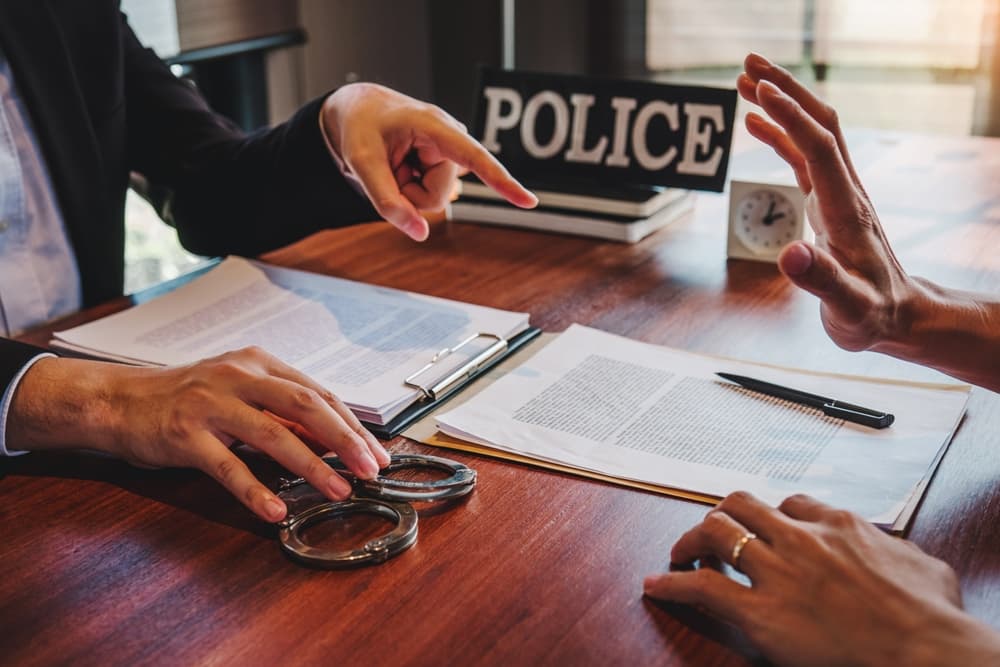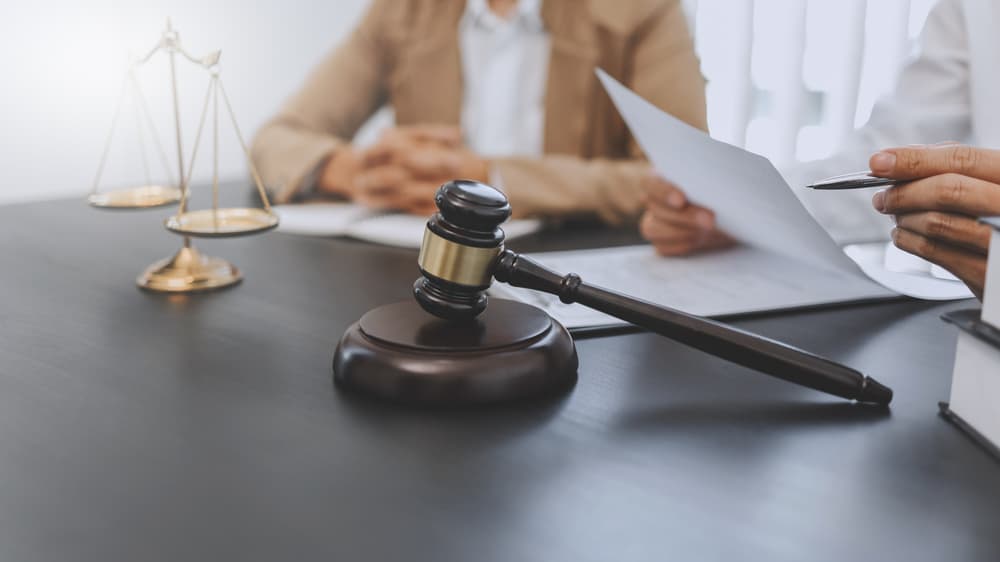A night out in Abilene or San Angelo can sometimes take an unexpected turn, especially when tempers flare and arguments escalate into physical altercations. A bar fight may seem like a momentary lapse in judgment, but it can lead to serious criminal charges with long-lasting consequences.
If you are involved in a bar fight in Texas and facing criminal charges, you need an experienced San Angelo criminal defense attorney. At the Law Offices of David M. White, our skilled criminal defense team can explain the legal ramifications of bar fights in Abilene and San Angelo, how Texas law applies, and what steps you can take to protect yourself if you’re facing charges.
Common Charges Arising from Bar Fights in Texas

Criminal charges arising from bar fights depend on the severity of the incident, the extent of any injuries, and the circumstances surrounding the altercation. In Texas, the most common charges stemming from a bar fight include:
Assault
Assault is one of the most frequent charges individuals face after a bar fight. Under Texas law, assault occurs when a person intentionally, knowingly, or recklessly causes bodily injury to another, threatens another with imminent bodily injury, or makes physical contact with another that is offensive or provocative.
- Simple Assault: This charge can arise from causing minor injuries or even threatening someone with harm without physical contact. Simple assault is typically a Class A misdemeanor but can be elevated to a Class C misdemeanor if the physical contact was considered merely offensive.
- Aggravated Assault: If a bar fight results in serious bodily injury or involves the use of a deadly weapon (such as a knife or broken bottle), the charge can be elevated to aggravated assault. This is a second-degree felony in Texas, but it can become a first-degree felony if the assault involves certain factors, such as causing severe injuries or using a deadly weapon against a public servant.
Disorderly Conduct
Disorderly conduct is a broad charge that can be applied to various behaviors during a bar fight. In Texas, disorderly conduct can include fighting in public, using offensive language or gestures, or making unreasonable noise.
- Public Fighting: Engaging in a fight in a public place, such as a bar, can lead to a disorderly conduct charge, which is typically a Class C misdemeanor. However, the charge could be more severe if the fight causes significant public disruption.
- Offensive Language or Gestures: If a bar fight involves using abusive or obscene language or gestures intended to incite a breach of the peace, you could be charged with disorderly conduct.
Public Intoxication
Alcohol often plays a significant role in bar fights, and if you were intoxicated during the altercation, you might also face a charge of public intoxication. In Texas, a person is considered publicly intoxicated if they are in a public place while intoxicated to the degree that they may endanger themselves or others.
- Class C Misdemeanor: Public intoxication is typically a Class C misdemeanor, but repeat offenses can lead to more severe penalties, including fines and potential jail time.
Criminal Mischief
You could face criminal mischief charges if a bar fight results in property damage. Criminal mischief occurs when a person intentionally or knowingly damages or destroys the property of another without their consent.
- Varying Degrees of Charges: The severity of the charge depends on the extent of the damage. Minor damage may result in a Class C misdemeanor, while significant property damage could lead to felony charges.
Disrupting a Public Meeting or Assembly
In some cases, if a bar fight interrupts or disturbs a public gathering, you could face charges of disrupting a public meeting or assembly. This charge is more likely to apply if the altercation occurs at a venue hosting an event or large gathering.
- Class B Misdemeanor: This offense is typically charged as a Class B misdemeanor in Texas, which can result in fines and jail time.
Resisting Arrest
If law enforcement officers arrive at the scene of a bar fight and attempt to arrest you, any resistance or attempt to prevent your arrest can lead to additional charges. Resisting arrest is taken seriously in Texas and can significantly compound your legal troubles.
- Class A Misdemeanor: Resisting arrest is generally charged as a Class A misdemeanor. However, if a deadly weapon is used during the resistance, the charge could escalate to a felony.
Defending Against Bar Fight Charges in Abilene and San Angelo
Facing criminal charges after a bar fight can be overwhelming, especially if you’ve never been in legal trouble. However, it’s important to remember that being charged does not mean you are automatically guilty. A skilled criminal defense attorney, like David M. White, can help you navigate the legal process and build a strong defense. Here are some common defenses that may be used in bar fight cases:
Self-Defense
One of the most common defenses in bar fight cases is self-defense. In Texas, you have the right to defend yourself if you reasonably believe you are in immediate danger of bodily harm. To successfully argue self-defense, your attorney must demonstrate that you acted to protect yourself and that your actions were proportional to the threat you faced.
Defense of Others
Similar to self-defense, the defense of others may apply if you intervened in a bar fight to protect someone else from harm. Texas law allows you to use force to defend another person if you reasonably believe they are in immediate danger of harm.
Lack of Intent
For certain charges, such as assault, the prosecution must prove that you intentionally or knowingly caused harm. If your actions were accidental or you did not intend to cause injury, your attorney may argue that you lacked the intent necessary for a conviction.
Mutual Combat
In some cases, both parties in a bar fight may be equally responsible for the altercation. If the fight was consensual, your attorney might argue that you were engaged in mutual combat, potentially reducing the severity of the charges against you.
Insufficient Evidence
The burden of proof lies with the prosecution, meaning they must prove beyond a reasonable doubt that you committed the crime. If there is insufficient evidence to support the charges, your attorney can argue for a dismissal or reduction.
Mistaken Identity
In the chaos of a bar fight, it’s possible that the wrong person could be identified as the perpetrator. If you were mistakenly identified as being involved in the fight, your attorney could argue that you were not the person who committed the crime.
Legal Consequences of Fighting Back

As mentioned above, the law recognizes the right to self-defense and defense of others in Texas. However, under Texas law, there are important criteria that must be met for this defense to be considered justified:
- Reasonable Belief of Imminent Danger: Your belief that you or someone else is in immediate danger must be reasonable. This means a reasonable person in the same situation would have perceived a similar threat.
- Proportionality: The force used in self-defense must be proportional to the threat faced. For example, using deadly force is only justified if there is a reasonable belief that it is necessary to prevent serious injury or death.
- Unlawful Aggression: Self-defense is not applicable if you were the initial aggressor or had the opportunity to retreat safely before using force.
When Fighting Back May Cross the Line
Even if you believe you were defending yourself or others, there are scenarios where fighting back could be deemed excessive or unjustified. Actions that exceed the necessary force or are retaliatory in nature can lead to criminal charges. Examples include:
- Escalating the Situation: If you escalate the confrontation beyond what was necessary to defend yourself, you may face charges for aggravated assault or other offenses.
- Using Deadly Force Unjustifiably: Employing deadly force in situations where it is not warranted can result in severe legal consequences, including charges of manslaughter or homicide.
Understanding the legal boundaries of fighting back and seeking timely legal help can significantly affect the outcome of your case. If you find yourself facing legal challenges related to self-defense or the defense of others, consulting with an experienced attorney is a crucial step in protecting your rights and achieving a favorable resolution.
Potential Consequences of a Bar Fight Conviction
The consequences of a conviction stemming from a bar fight can be severe and long-lasting. In addition to the immediate penalties, such as fines and jail time, a conviction can also impact your future in several ways:
- Criminal Record: A conviction will result in a permanent criminal record, affecting your ability to find employment, housing, and education opportunities. Certain charges, such as aggravated assault, are particularly damaging and can have lifelong repercussions.
- Professional Consequences: If you hold a professional license or work in a field that requires background checks, a criminal conviction could jeopardize your career. Some professions, such as law enforcement, healthcare, and education, have strict standards regarding criminal records.
- Financial Impact: In addition to fines and court costs, a conviction can lead to other financial consequences, such as increased insurance premiums, restitution payments to the victim, and potential loss of income due to incarceration.
- Personal Relationships: A criminal conviction can strain relationships with family, friends, and colleagues. The stigma associated with a conviction can also affect your social standing and reputation in the community.
Navigating the Legal Process: Why You Should Seek Help Early
If you’ve been charged with a crime following a bar fight in Abilene or San Angelo, a skilled criminal defense attorney can be a vital ally at any stage of the legal process. From the initial arrest and booking at facilities like the Taylor County Detention Center to your first appearance in court and beyond, having legal support is essential.
An attorney can guide you through each step, from advocating for reasonable bail to developing a strong defense strategy. Whether you’re facing an initial appearance before a judge, negotiating plea deals, or preparing for trial, it’s never too late to reach out for help.
Even if your case progresses to sentencing or appeals, a dedicated attorney can work to mitigate consequences and explore every possible avenue for a favorable outcome. Don’t wait—consulting with a criminal defense lawyer can make a significant difference in navigating the complexities of your case.
How Can the Law Offices of David M. White Help Fight Criminal Charges After a Bar Fight?

If you’re facing charges after a bar fight in Abilene or San Angelo, having an experienced criminal defense attorney by your side is crucial. The legal system can be complex and intimidating, with high stakes.
David M. White understands the nuances of Texas law and the local legal system and can help you navigate your case with skill and dedication. Our criminal defense team provides:
Local Knowledge and Experience
As an experienced criminal defense attorney based in Texas, David M. White is familiar with the local courts, judges, and prosecutors in Abilene and San Angelo. This local knowledge can be invaluable when building a defense strategy tailored to the specifics of your case.
Personalized Attention
Unlike larger firms, the Law Offices of David M. White offer personalized attention to each client. You will work directly with your attorney throughout the entire process, ensuring that your case receives the focus and dedication it deserves.
Strategic Defense
Your lawyer will work to build a strategic defense based on the facts of your case, exploring all possible defenses and mitigating factors to achieve the best possible outcome. Whether negotiating a plea deal, seeking a dismissal of charges, or fighting for your rights at trial, you can trust that your case is in capable hands.
Contact the Law Offices of David M. White to Protect Your Future After a Texas Bar Fight
A bar fight can quickly escalate from a minor altercation to a serious legal issue with significant consequences. If you’ve been charged with a crime after a bar fight in Abilene or San Angelo, take the situation seriously and seek legal representation as soon as possible.
David M. White is here to help you navigate the complexities of the legal system, protect your rights, and work towards the best possible outcome for your case. Your future is too important to leave to chance.
If you or a loved one are facing charges after a bar fight, don’t wait—contact the Law Offices of David M. White today for a confidential consultation. Call our Abilene office at 325-437-3311, our San Angelo, TX, office at 325-221-4421, or contact us online.
